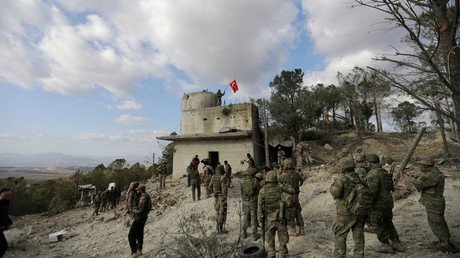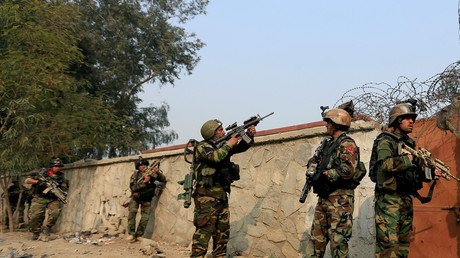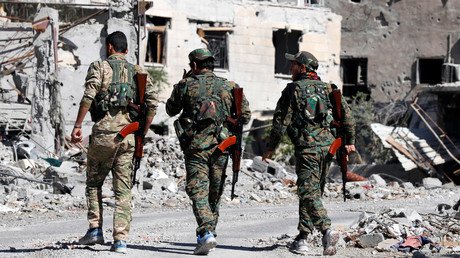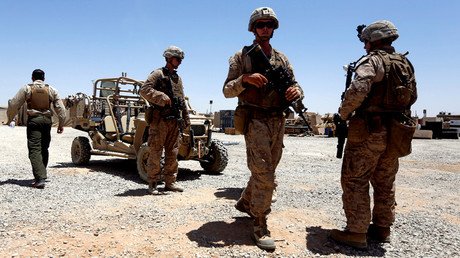US ‘game of provocations’ caused military conflict in Syria’s Afrin – Lavrov
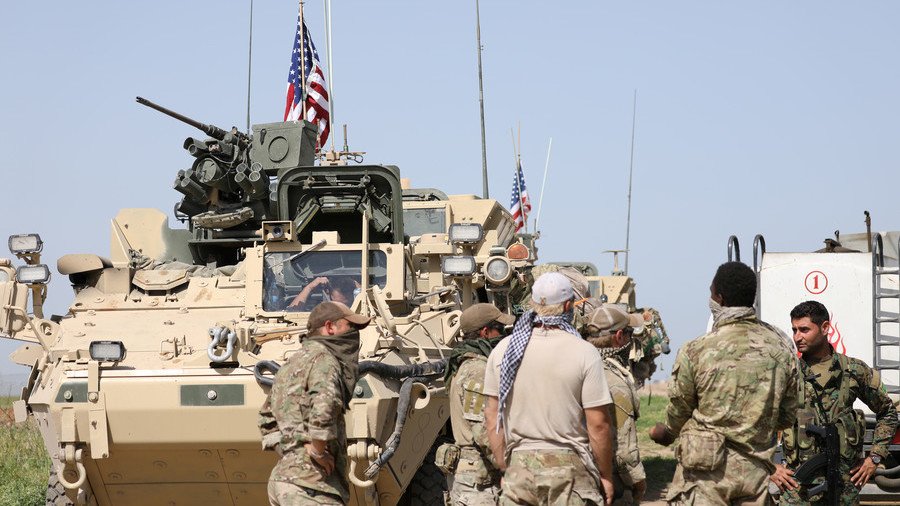
Russian Foreign Minister Sergey Lavrov has blamed US policy in Syria for the conflict between Turkey and Kurdish militias in Afrin, saying that the recent clashes were caused by US actions that look like “deliberate provocation.”
For many months, the US has been engaged in a political “game” on the territories to the east from the Euphrates River, Lavrov said at a joint press conference with the Pakistani Foreign Minister, Khawaja Muhammad Asif, in Moscow. The Russian minister apparently referred to the US’ continued support of the Kurdish militias and its plans to create a 30,000-strong Border Security Force (BSF) in Syria, half of which was expected to be made up of the Kurdish-dominated Syrian Democratic Forces (SDF) alliance.
The US policy in Syria has long been questionable, Lavrov said, but given the ongoing developments in the Afrin region, it started to “increasingly look like a deliberate provocation,” he added. Shortly after the US announced its plans to create the BSF, Turkey launched its Operation Olive Branch against the Kurdish People’s Protection Units (YPG) controlling the Syrian enclave of Afrin.
Ankara was angered by the fact that the US plans to involve the YPG in its initiative. Turkey says the YPG is linked to the Kurdistan Workers’ Party (PKK), which is designated as a terrorist group by Ankara.
Over the course of the operation, Turkey also repeatedly urged the US to take a clear stance on the issue, adding that the lack of clarity on the part of Washington is to blame for the “missing trust” between the two NATO allies, whose relations have become increasingly strained.
Lavrov did not limit his criticism of the US policy on Syria only. He also called out Washington for its ambiguous stance on the fact that Islamic State (IS, former ISIS/ISIL) terrorists are present in Afghanistan.
“According to our data, there is a significant presence of Islamic State in northern and eastern Afghanistan,” Lavrov said, adding that they number in the “thousands.” “We are concerned by the fact that…the US and NATO military, who are stationed in Afghanistan, try to conceal and deny [it].”
“The years-long presence of the US and NATO troops has brought neither peace nor stability to the Afghans,” the minister said at the press conference, adding that Afghanistan still faces “degradation of the security situation” and “growing terrorist activity.” He also said that drug production and drug trade have grown exponentially over the period of the US and NATO operation in Afghanistan.
The US new strategy in Afghanistan, that once again focuses on military action, is also unlikely to improve the situation, Lavrov said, calling such an approach a “dead end.” Moscow believes it is necessary to launch a “national reconciliation process” in Afghanistan that would give the leading role to the Afghan people and would also take the interests of the regional players into account, he added.
The situation in Afghanistan remains dire. A UN report on civilian casualties in the country, which was released in mid-February, reveals that thousands of civilians have died in the ongoing conflict between the NATO-backed Afghan security forces and anti-government factions, such as Islamic State and the Taliban.
In February, it was also revealed that the International Criminal Court (ICC) received as many as 1.17 million reports of alleged war crimes from Afghan citizens since late November 2017. The list of suspected atrocities includes crimes committed by the Taliban and Islamic State as well as by Afghan security forces, the US-led coalition and various intelligence agents, according to AP.
